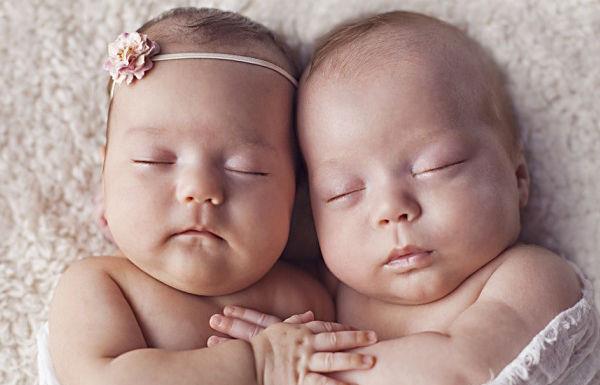Surely you will find it very interesting to see the twins, because they have many similar characteristics. However, you may not know all the interesting facts about non-identical twins. So let's find out with MarryBaby how offline!
content
Interesting facts about non-egg twins
Other twins other than eggs?
Factors that increase the likelihood of other twins eggs
Unlike what people often think of being twins, they will have to be identical in appearance and part of each other's personalities. But actually this only happens to twins of the same egg, while the twins other than the egg will have quite characteristic differences.

Non-identical twins are often not the same in appearance, personality, and interests
Interesting facts about non-egg twins
Non-identical twins have the same genetic makeup as that of other siblings in the family. Therefore, with only 50% identical DNA structure, each person receives half of the DNA from the mother's egg and half from the father's sperm.
The different twin fetus develops in an independent direction, so each baby will have its own placenta to provide nutrients. At the same time, located in two different amniotic membranes in the womb of the mother.
The gestation period of a normal pregnancy lasts about 40 weeks of gestation, but with other twins eggs will be 37-38 weeks shorter so the average weight of twins is 1.9kg.
Just like any sibling, different egg twins can look very different. From facial features, physique to personality or hobby. Therefore, you should not be surprised to see two twins but completely different.
The twins will often have their own language, even when they do not know how to speak, they are very in tune and understand each other, or in other words "telepathy".
As adults, each with different twins eggs will have different developmental tendencies.
Other twins other than eggs?
An egg-different twin is when a mother's body has 2 eggs that release at the same time during a menstrual cycle and are conceived with 2 separate sperm cells. Two babies will develop together in the mother's womb, but each baby will develop in its own independent directions
The sex ratio of non-identical twins is 50:50, meaning that half of non-identical twins is 1 boy 1 girl and the other half is 2 boys or 2 girls. Sex is formed based on the father's chromosomes: XX is female, XY is male.
This is the most common case when there are twins with different characteristics, in addition there are a number of twins with a relatively low rate of different eggs.
Different period fertilization
It is also having twins, but the difference here is that the two eggs will meet two sperm at different times. This means that an egg meets a sperm that forms the first zygote, and when the zygote develops for a few weeks, the second zygote is formed. So, after giving birth, one baby will be sturdy and bigger than the other.
Twins are different from eggs - different from father
A mother can have a different twin of a twin from two different men, and a different case of multiple fertilization explains this problem. Accordingly, when a woman becomes pregnant and ovulates again, this egg fertilizes the sperm of another person and develops in parallel with the previously formed fetus.
Factors that increase the likelihood of other twins eggs
- Applying fertility technology, especially in vitro fertilization. These methods stimulate more ovulation each month and increase the likelihood of having twins with different eggs
- If the mother's family has a different twin, the odds of you will be pregnant with twins will be much higher
- Studies on reproduction have shown that women over the age of 35 are more likely to have different twins than younger people.
- The rate of twins with different eggs will be higher for those who have been pregnant and given birth many times
- The taller a woman is, the more likely she will be pregnant with other twins
- Mothers who have ever twins have a higher rate of twins at the next time than normal people
Whether twins are the same depends on a different twin or the same egg, and many other factors. Therefore, parents should not be too surprised or worried when their children have conflicting developments, as long as they all grow up healthy and intelligent.












